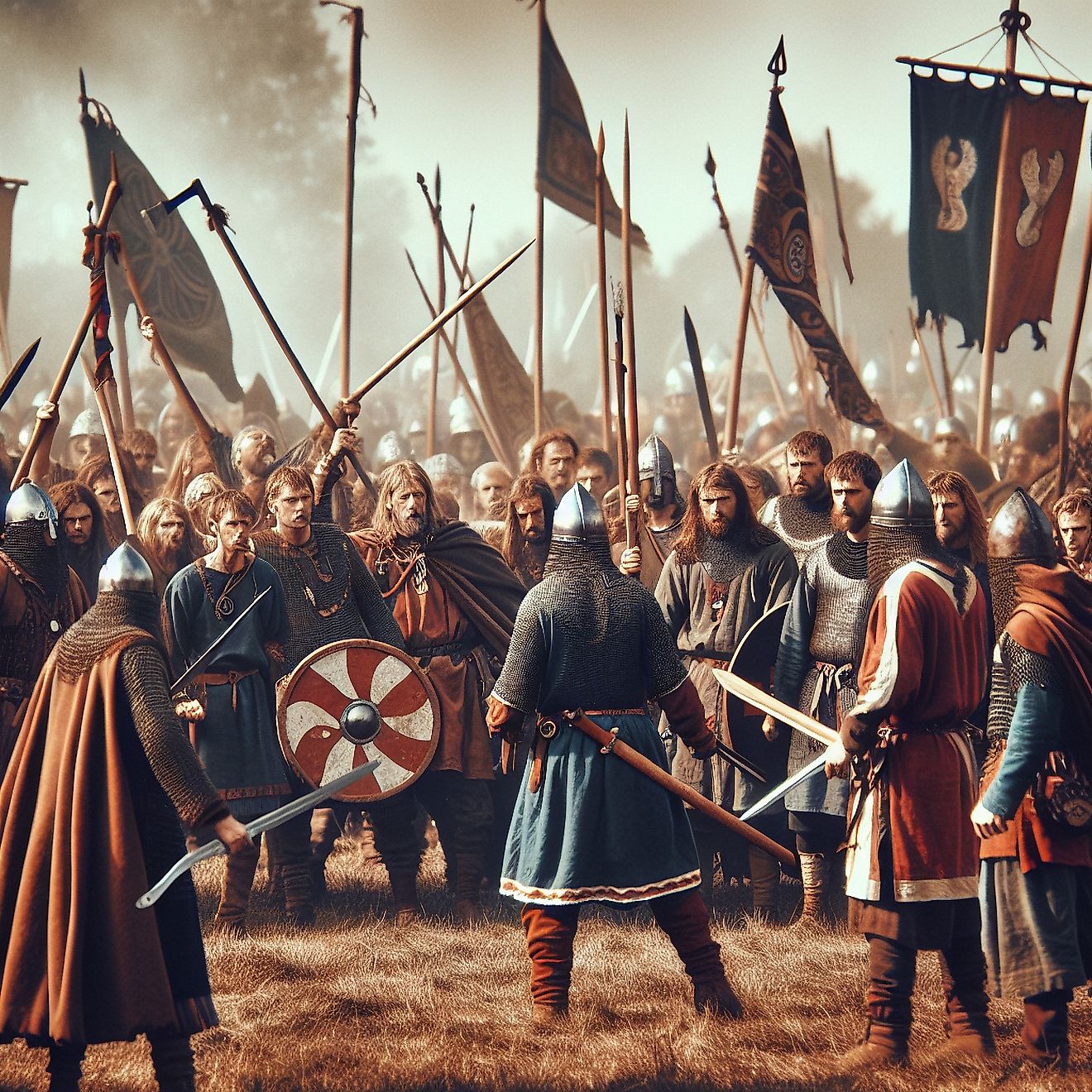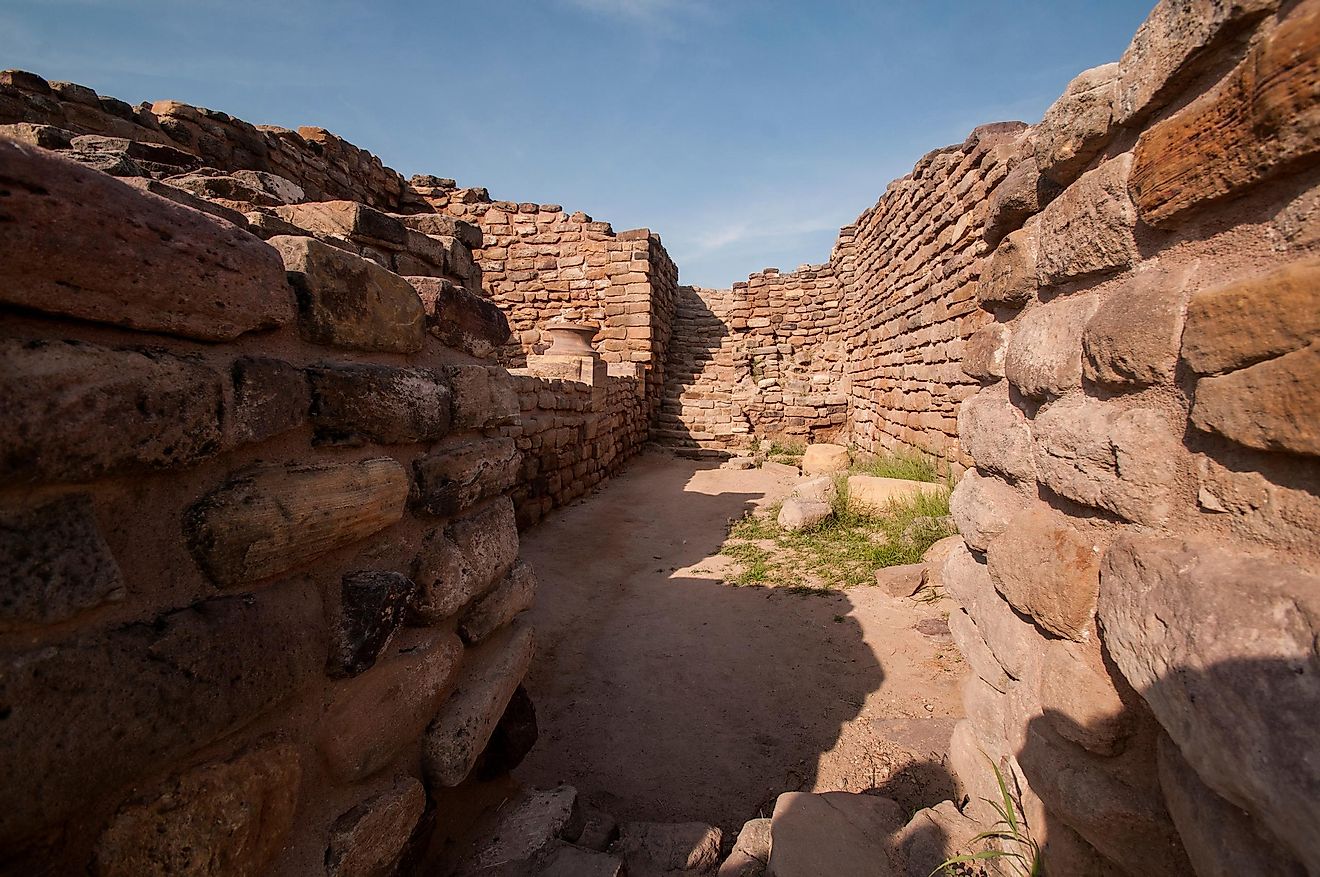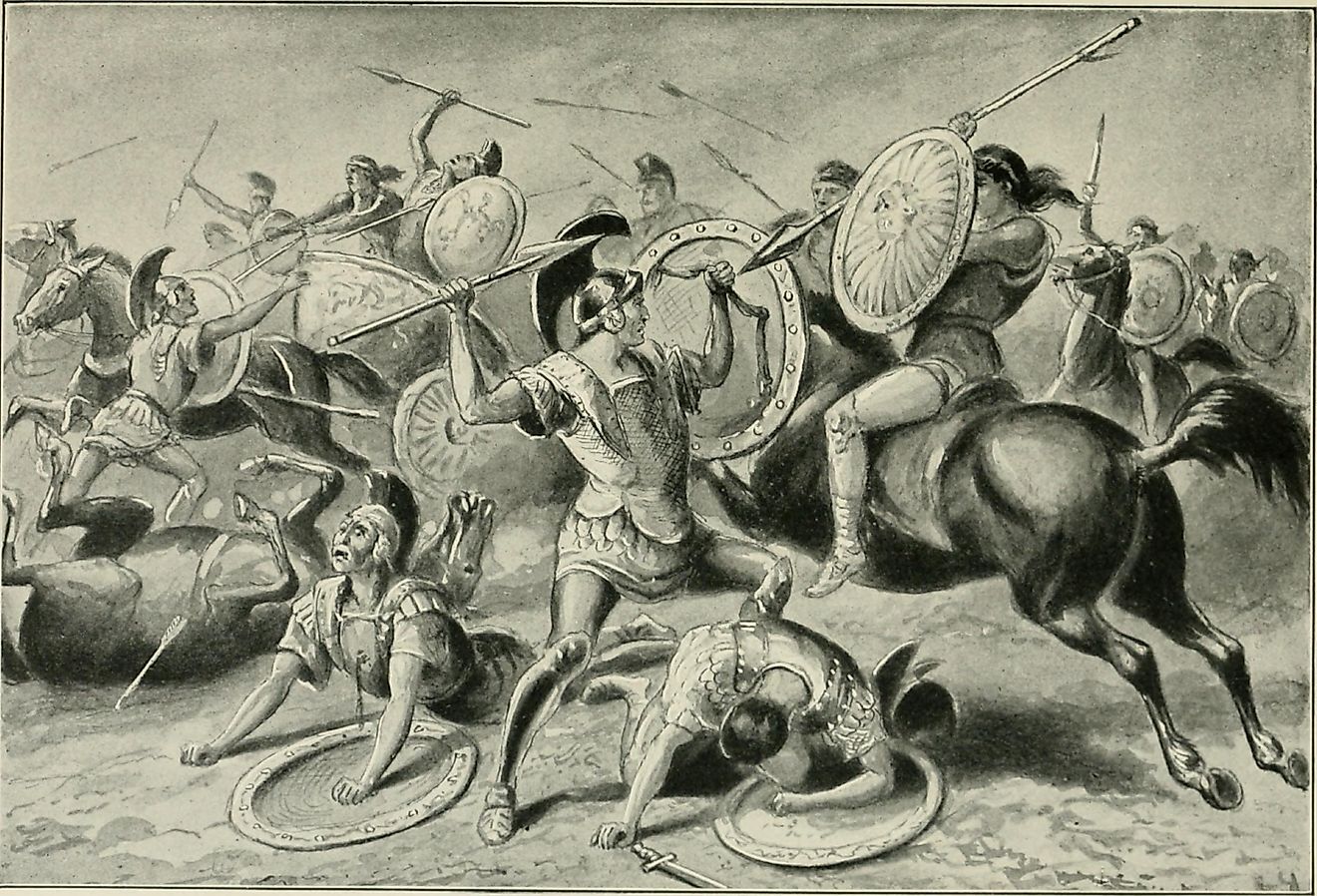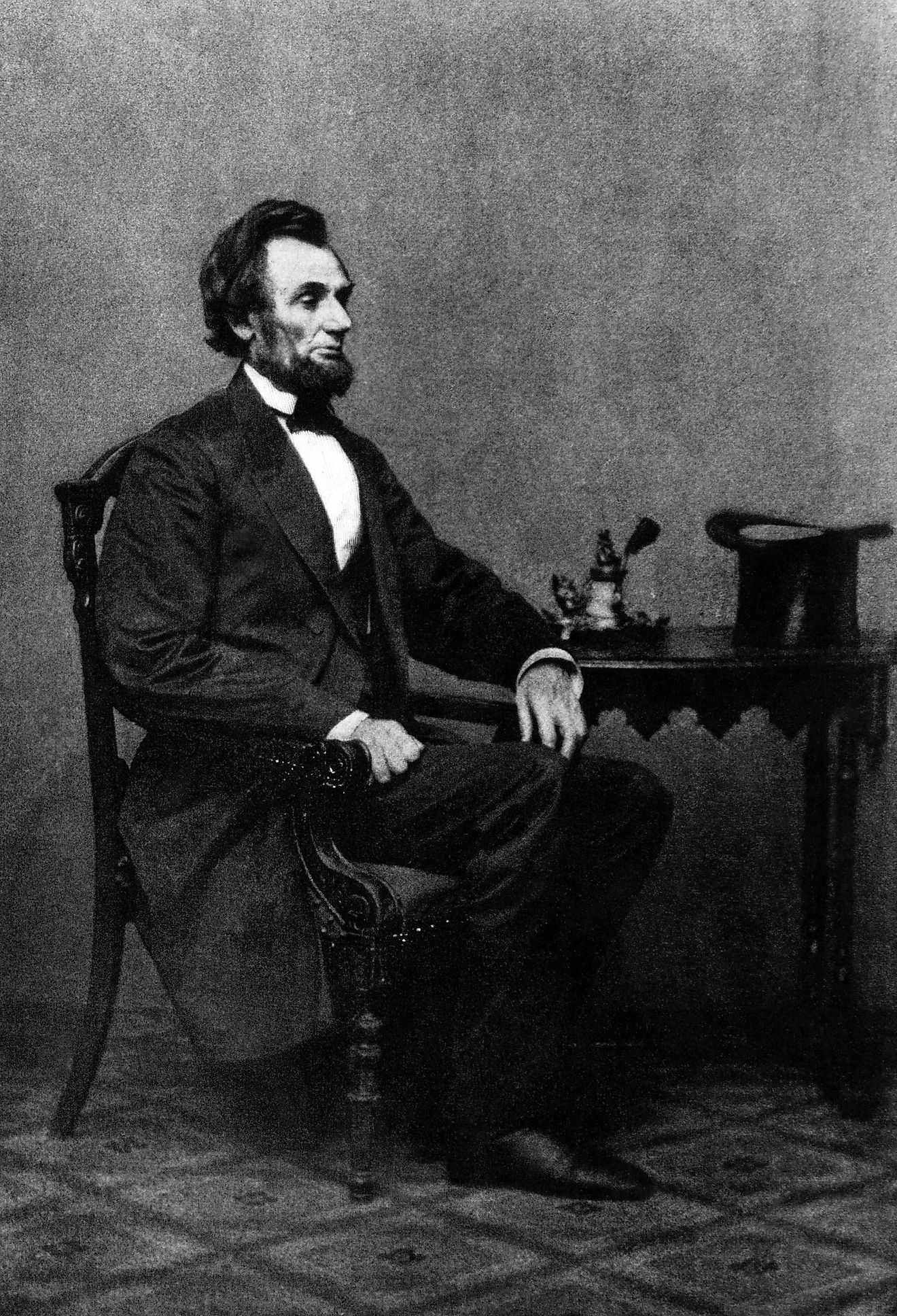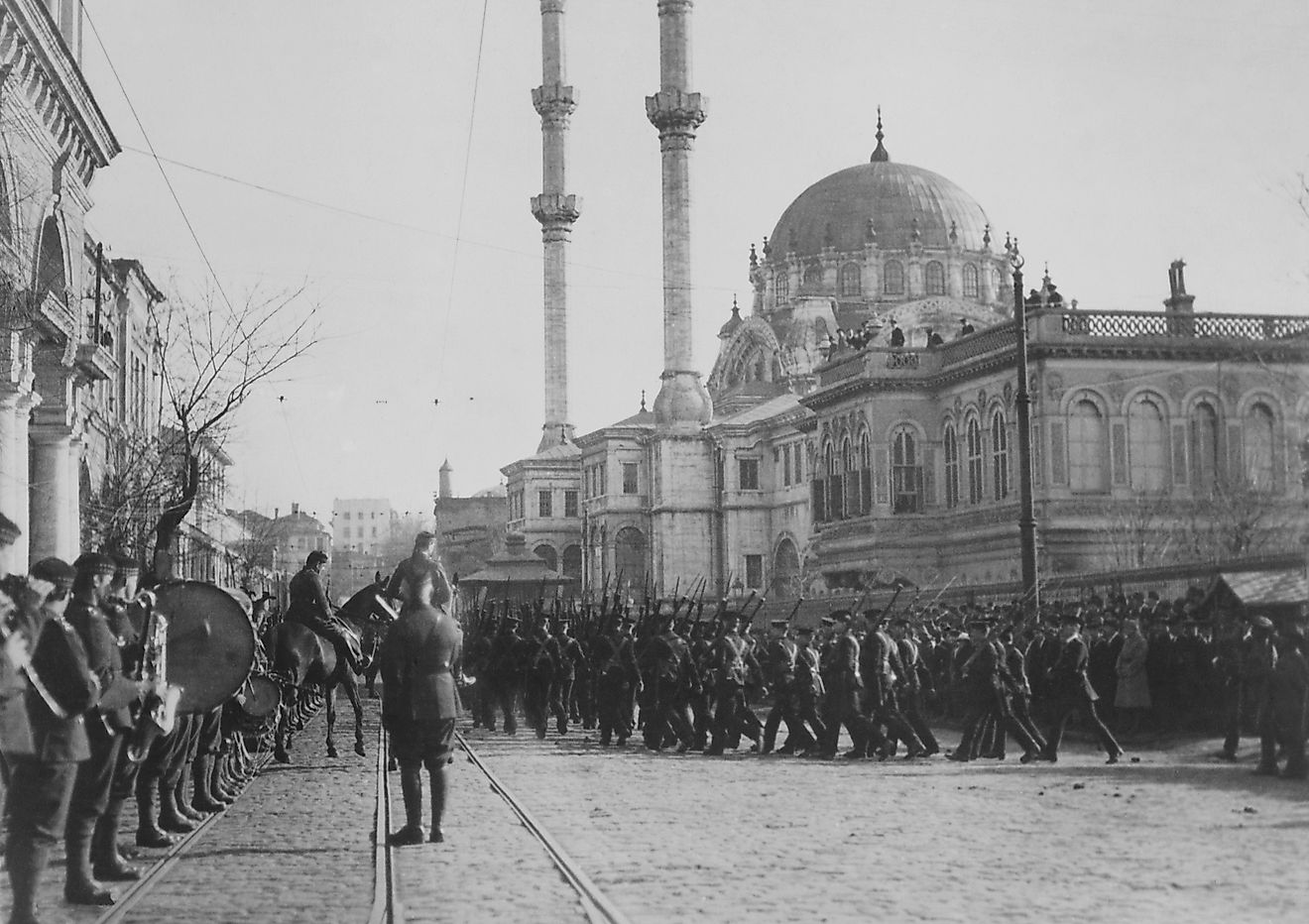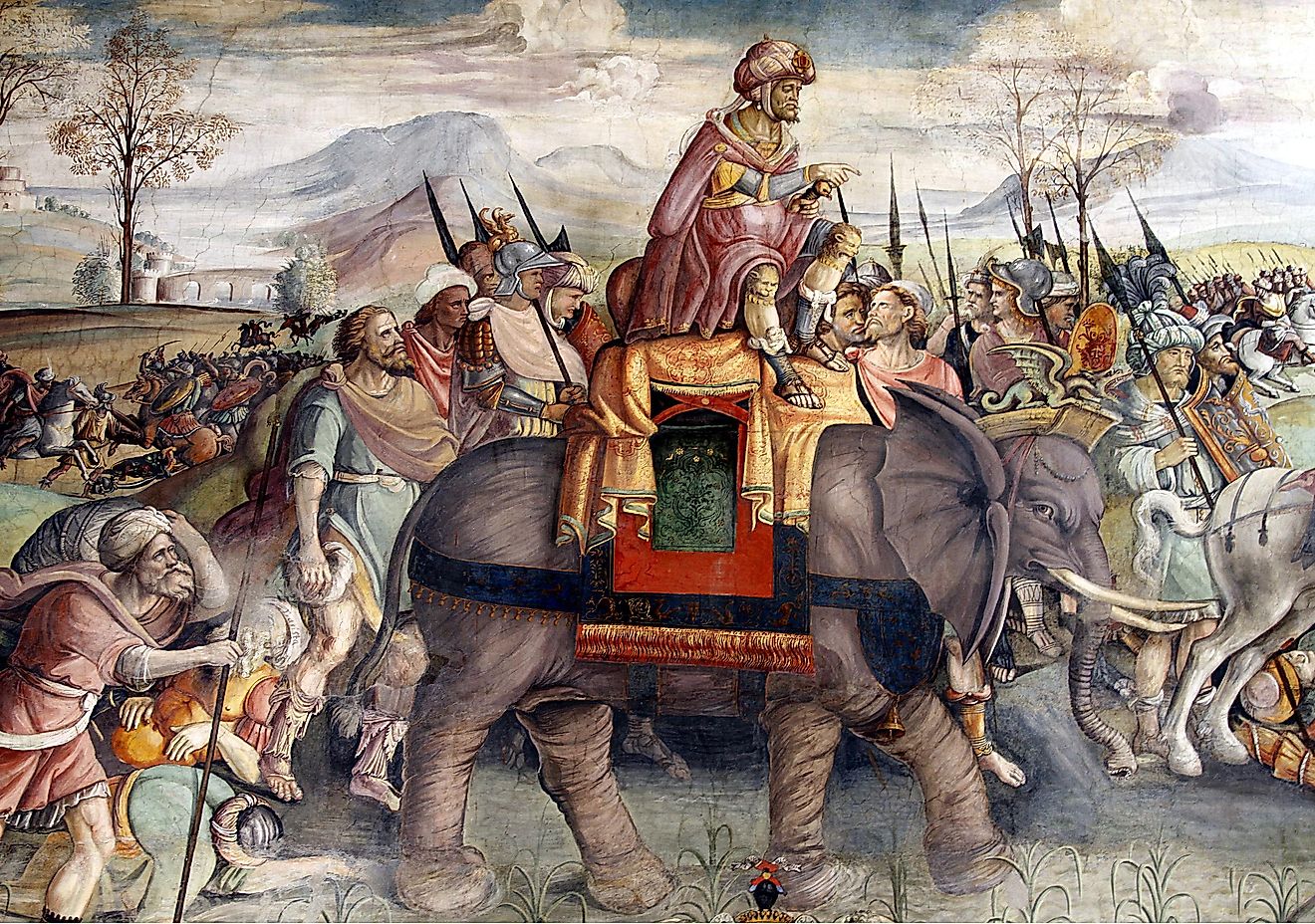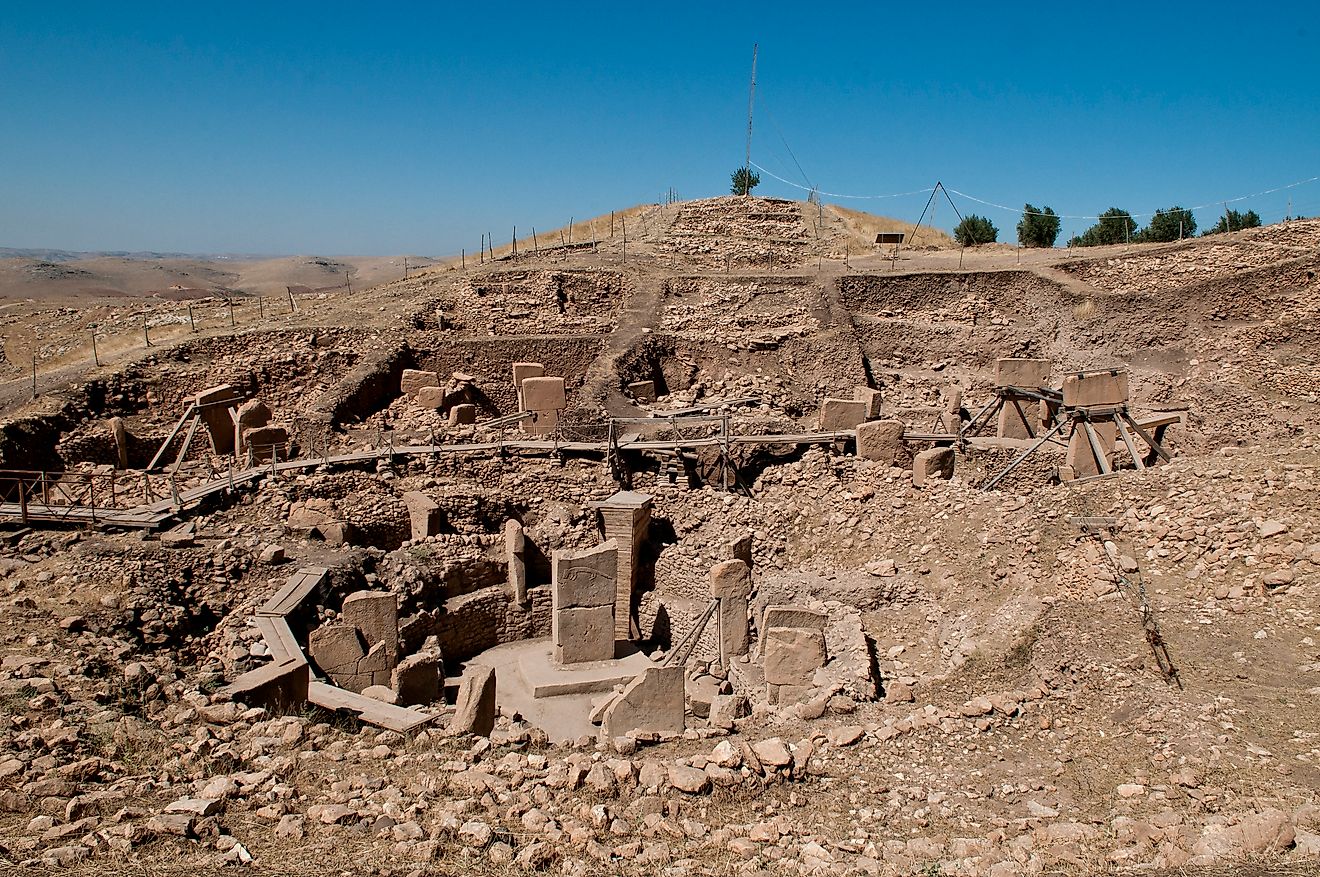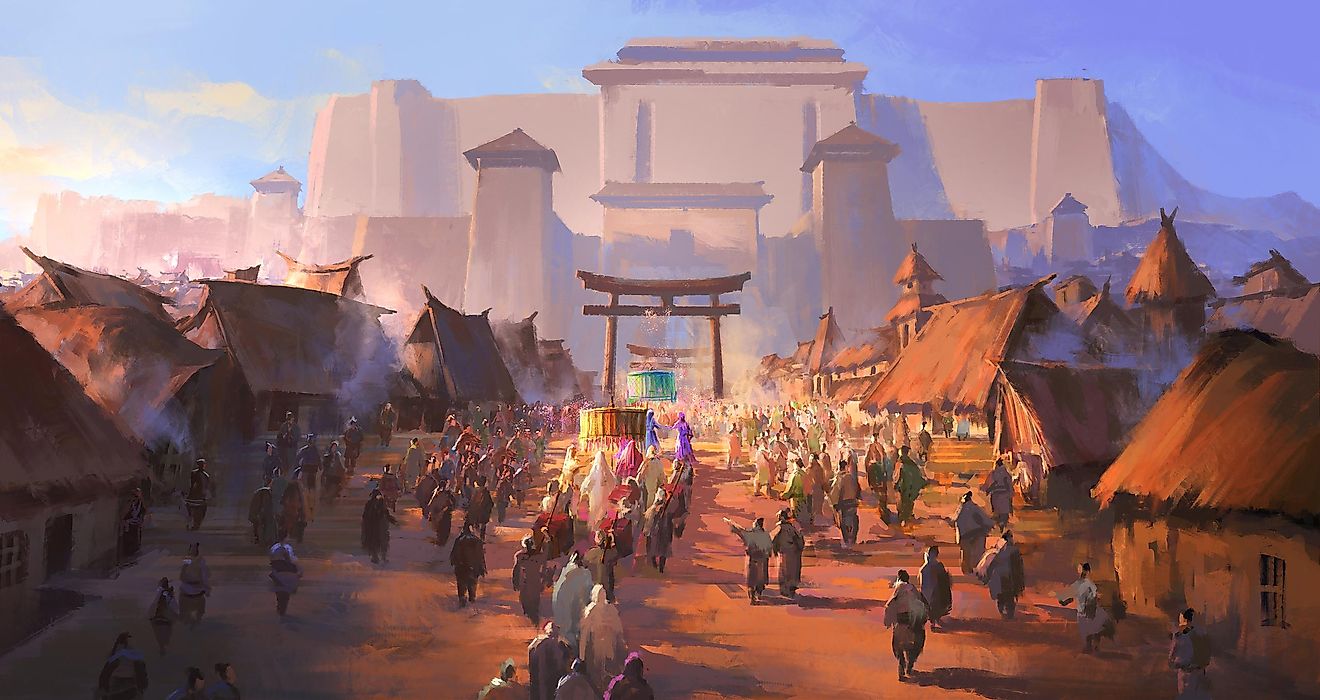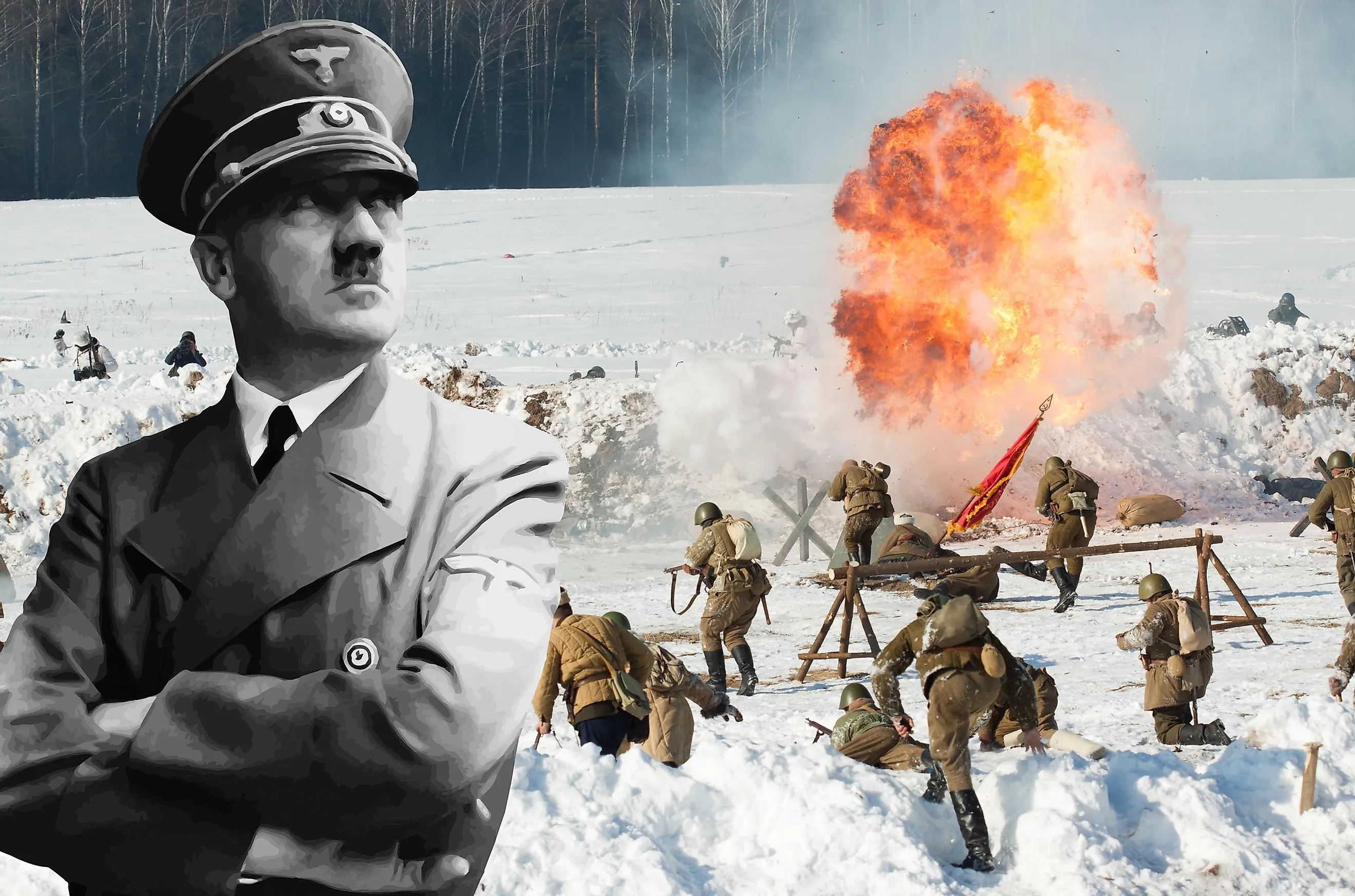
What Were The Main Causes Of World War II?
World War II began on September 1, 1939, when Germany invaded Poland. However, while this invasion was the sparkplug for the conflict, its underlying roots went back decades. Indeed, the legacy of the First World War, economic turmoil in Germany, Adolf Hitler's worldview, and Allied incompetence resulted in war breaking out in Europe. On the other hand, Japanese territorial expansion led to the beginning of the war in Asia.
World War I And The Conspiracies It Fostered
World War I ended in November 1918. Having failed to win any sort of decisive victory on the Western Front, Germany signed the November 11 armistice as the loser in the conflict. However, this outcome angered many Germans, causing widespread domestic unrest that included mutinies, attempted coups, and assassinations. In one moment, which perhaps best exemplified the chaos of 1918-1919, a socialist republic was briefly declared in Bavaria. Amidst this turmoil, conspiracy theories emerged about what "actually" happened at the war's end. The most popular of these theories was the "stab-in-the-back" myth, the notion that Jewish and communist politicians had betrayed the army by accepting the armistice. The National Socialist German Workers Party (NSDAP, or Nazi Party) used these conspiracy theories to their advantage, fomenting anger amongst the general population. This eventually culminated in them rising to power in 1933.
The Consequences Of The Treaty Of Versailles
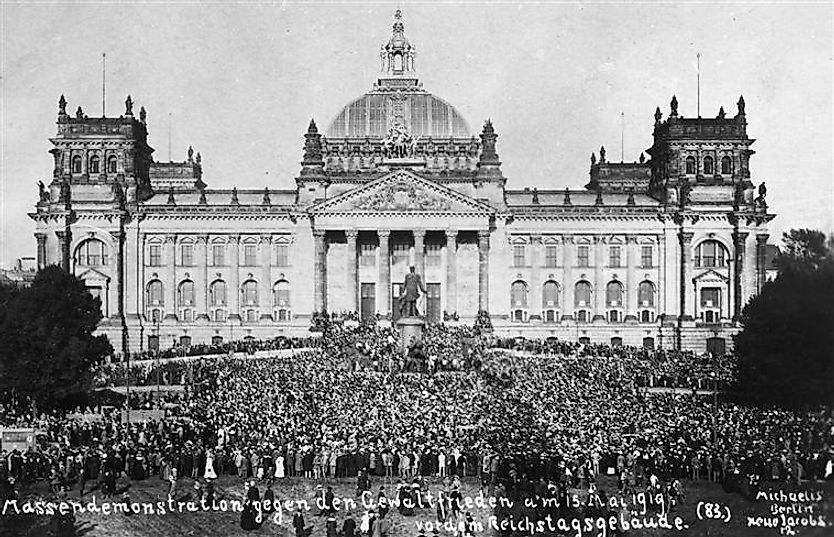
One must also consider the Treaty of Versailles, the peace treaty signed after World War I, when assessing the causes of World War II. The terms of this agreement were as follows: Germany needed to give up all of its colonies and a significant portion of its European territory. There was also a stipulation that the German Army would be reduced to 100,000 men and that the Rhineland would be demilitarized. Germany was also forced to pay the equivalent of 33 billion American dollars in reparations to the Allied powers and take sole responsibility for the war. The treaty was not discussed with Germany, and there was no room for negotiation; it was simply dictated to the German representatives, who were then forced to accept it. Moreover, some of the Allies believed the Treaty of Versailles was too harsh, with both Britain and the United States expressing reservations. Regardless, France thought it was not harsh enough and wanted to ensure that it would never again be invaded by Germany.
Much like the November Armistice, anger towards the Treaty of Versailles helped the Nazis rise to power. Furthermore, as will now be demonstrated, the agreement led to economic catastrophe in Germany.
German Economic Turmoil In The 1920s And 1930s
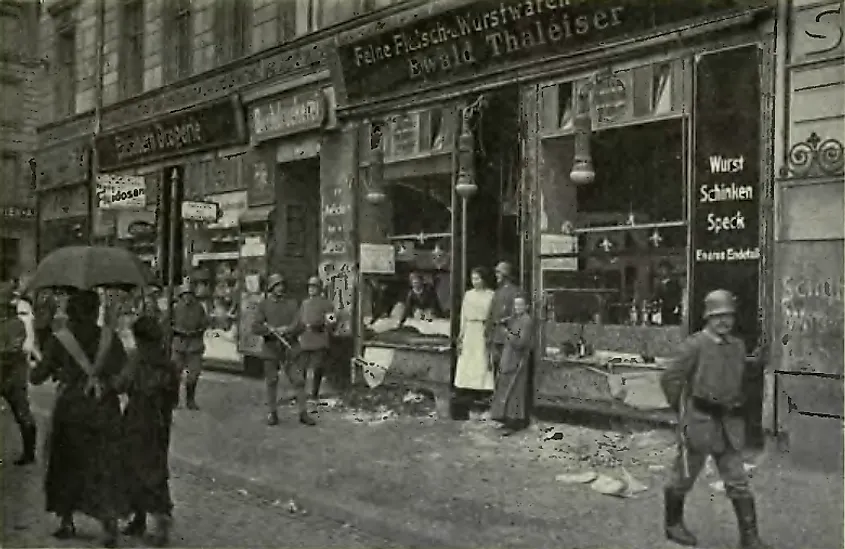
To pay off the reparations payments, the German government began printing money, resulting in hyperinflation. Thus, by November 1923, one American dollar was worth 4.2 trillion Reichsmark (RMS). But, following the introduction of a new currency, the Rentenmark, and the Dawes Plan, a more manageable series of reparations payments, the economy began to stabilize in 1924. This was all undone, however, with the onset Great Depression in 1929, and 33% of the working population was unemployed by February 1932. When combined with lingering anger toward the Treaty of Versailles and memories of the early 1920s, this paved the way for the rise of Hitler. Indeed, the Nazis' anti-government, populist, and hate-filled rhetoric greatly appealed to many of the millions of unemployed and angry people looking for a way to express their frustration. Thus, after several elections in which the Nazis gained more and more support, Adolf Hitler was finally named chancellor on January 30, 1933. With the Nazis in power, Europe was now significantly closer to war.
Hitler's Worldview
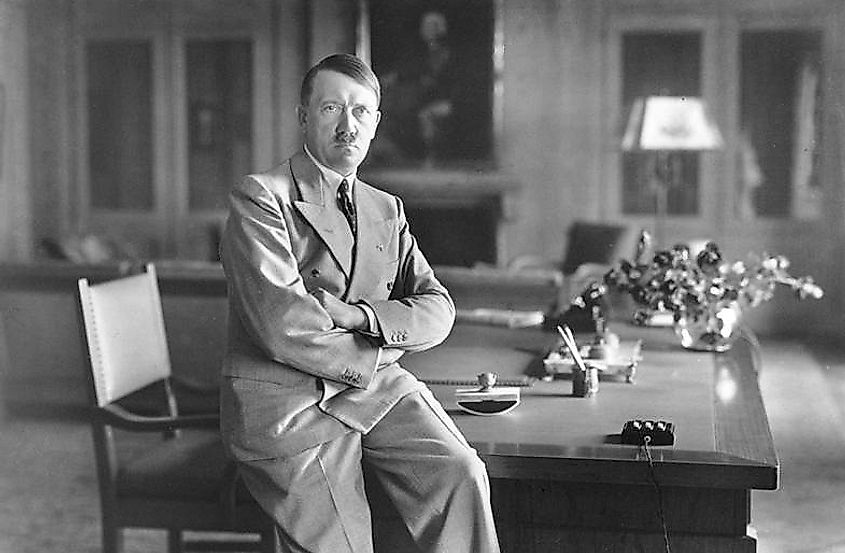
The major reason why war was far more likely once Hitler came to power can be attributed to his worldview. To Hitler, "struggle," specifically the struggle between races, characterized the nature of the world. Furthermore, he believed that gaining access to living space (Lebensraum) in the East, in particular the Soviet Union (USSR), was critical for the victory of the "Aryan race."
This belief needs to be understood in conjunction with his understanding of Slavs and Jews. To Hitler, Slavs were inferior to Aryans, whereas Jews stood outside his racial hierarchy. Thus, "the Jews" were able to subvert the struggle-based nature of the world by introducing ideas, democracy, human rights, capitalism, and communism. Hitler thought that this was what had happened in the First World War and was therefore obsessed with preventing another such subversion of nature. This obsession, paired with the belief that the USSR was a Slavic state run by Jews, informed most of the Nazis' foreign policy decisions.
The Failure Of Appeasement
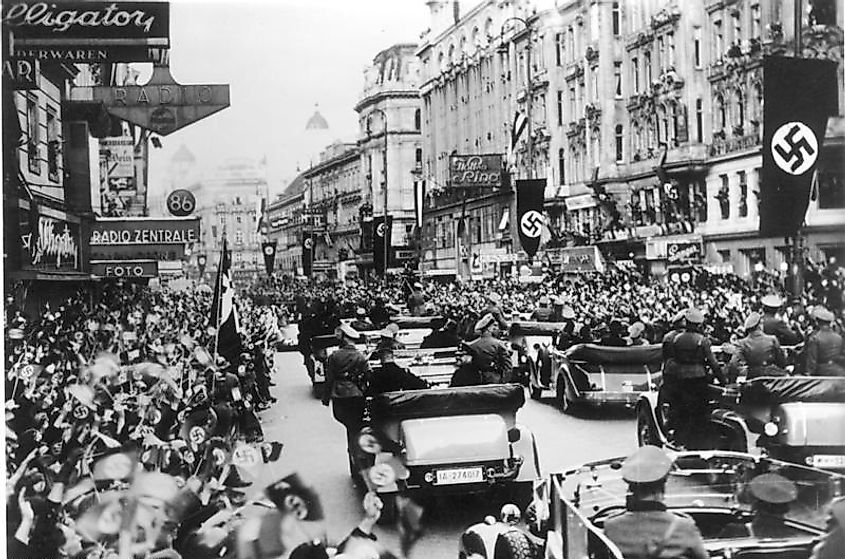
Another major reason for the Second World War was the Allies' failure to stop Hitler's aggression through their policy of appeasement. In 1935, Hitler reintroduced conscription. Then, on March 7, 1936, he remilitarized the Rhineland. Despite these actions violating the Treaty of Versailles, the Allies did nothing, hoping that giving Hitler what he wanted would prevent future aggression. However, this inaction had the opposite effect. In March 1938, Germany annexed Austria. The Sudetenland, a region of Czechoslovakia that contained mostly German speakers, was then annexed in the autumn of 1938, followed by an invasion of the rest of the country in early 1939. Ultimately, the invasion of Poland on September 1, 1939, was the final straw for the Allies, with France and the United Kingdom (UK) declaring war on Germany days later. By all accounts, appeasement had failed.
Japan's Desire For Territorial Expansion
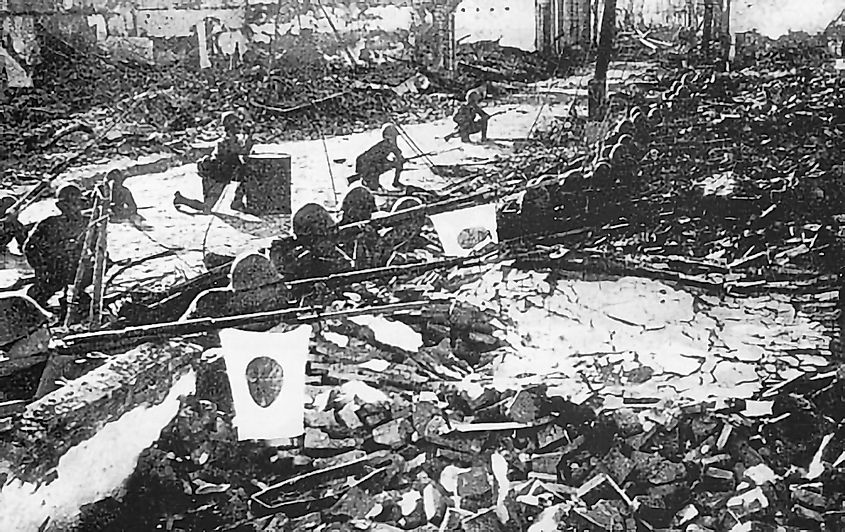
Germany was not the only world power making aggressive foreign policy maneuvers during this period. In the second half of the 1800s, Japan experienced massive population and economic growth. However, a lack of good farmland and few natural resources necessitated imperialism to sustain this prosperity. Thus, in the late 1920s, after years of military and diplomatic pressures, China gave Japan control of Manchuria's railways. Japanese forces then invaded Manchuria in September 1931 following a self-inflicted railway bombing and set up a puppet regime called Manchuko. Finally, following an exchange of fire between Chinese and Japanese soldiers near Peking in July 1937 (in an event known as the "Marco Polo Bridge Incident"), Japan launched a full-scale invasion of China. With that, the war in Asia began. Known more specifically as the "Second Sino-Japanese War", it actually began two years before the war in Europe.
The legacy of World War I needs to be understood as a cause of World War II. Hitler's worldview should also be considered when assessing the motivations of key actors. Moreover, the Allies' desperation to avoid another conflict ultimately contributed to increasing tensions. Finally, Japan's desire for territorial expansion was the sparkplug for war in Asia.
